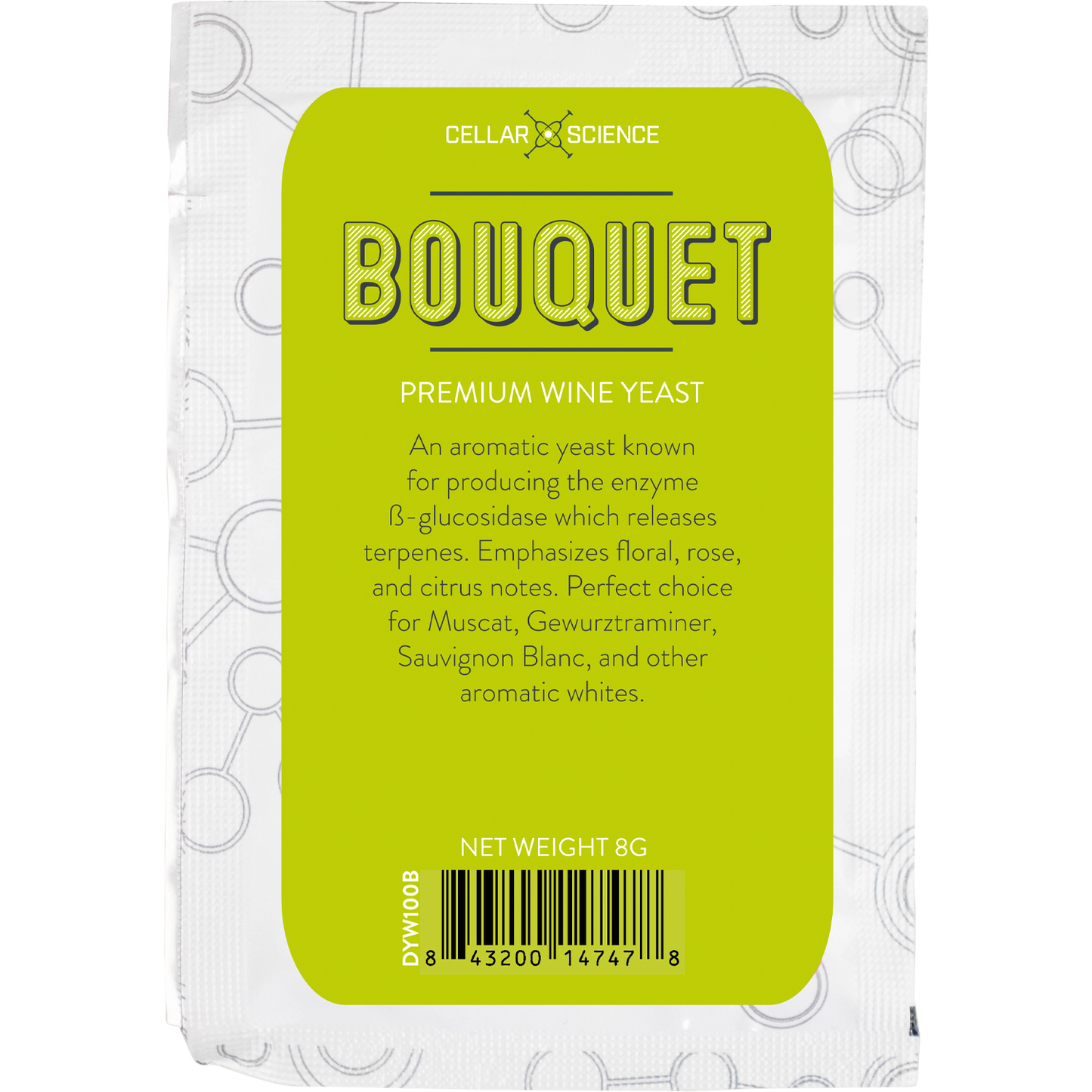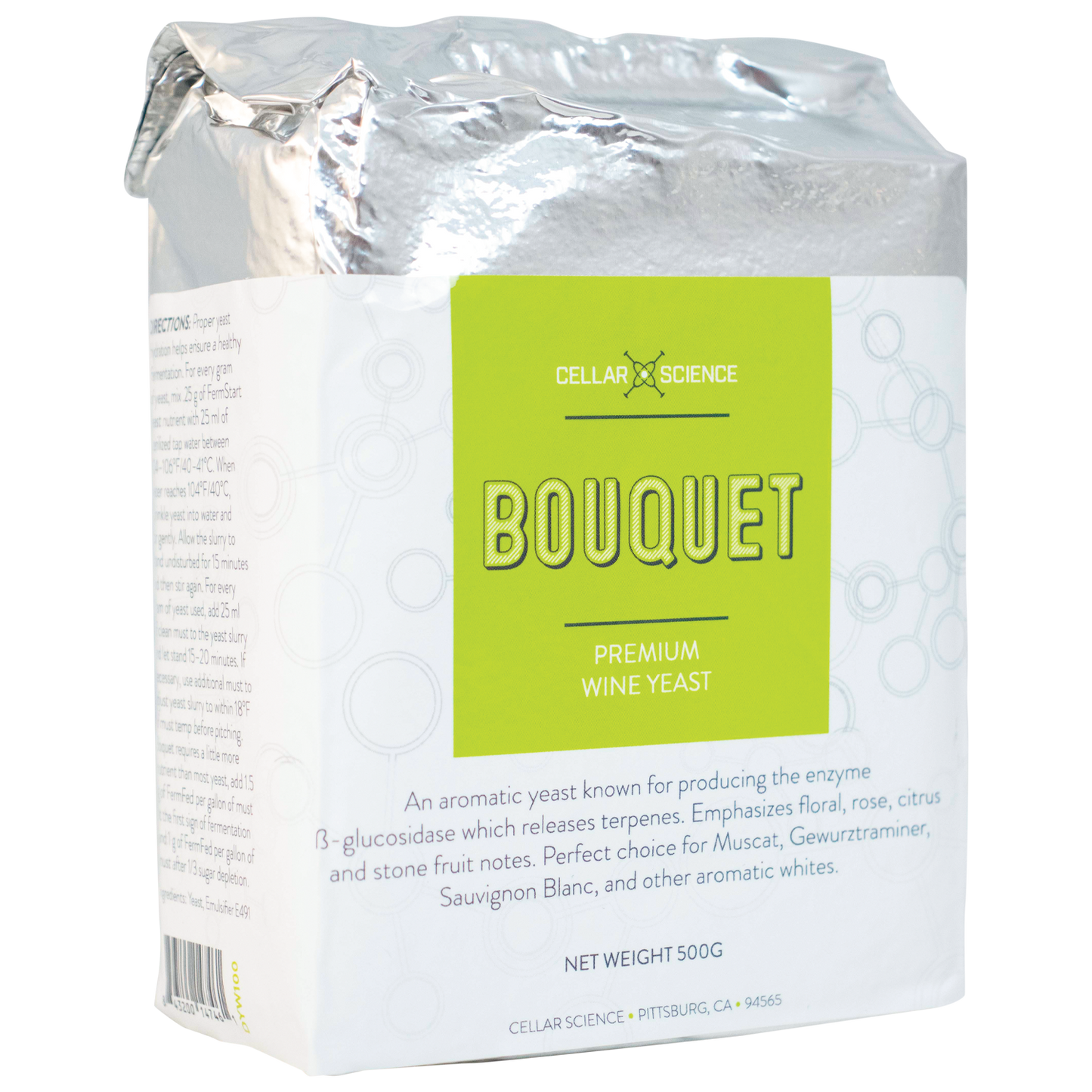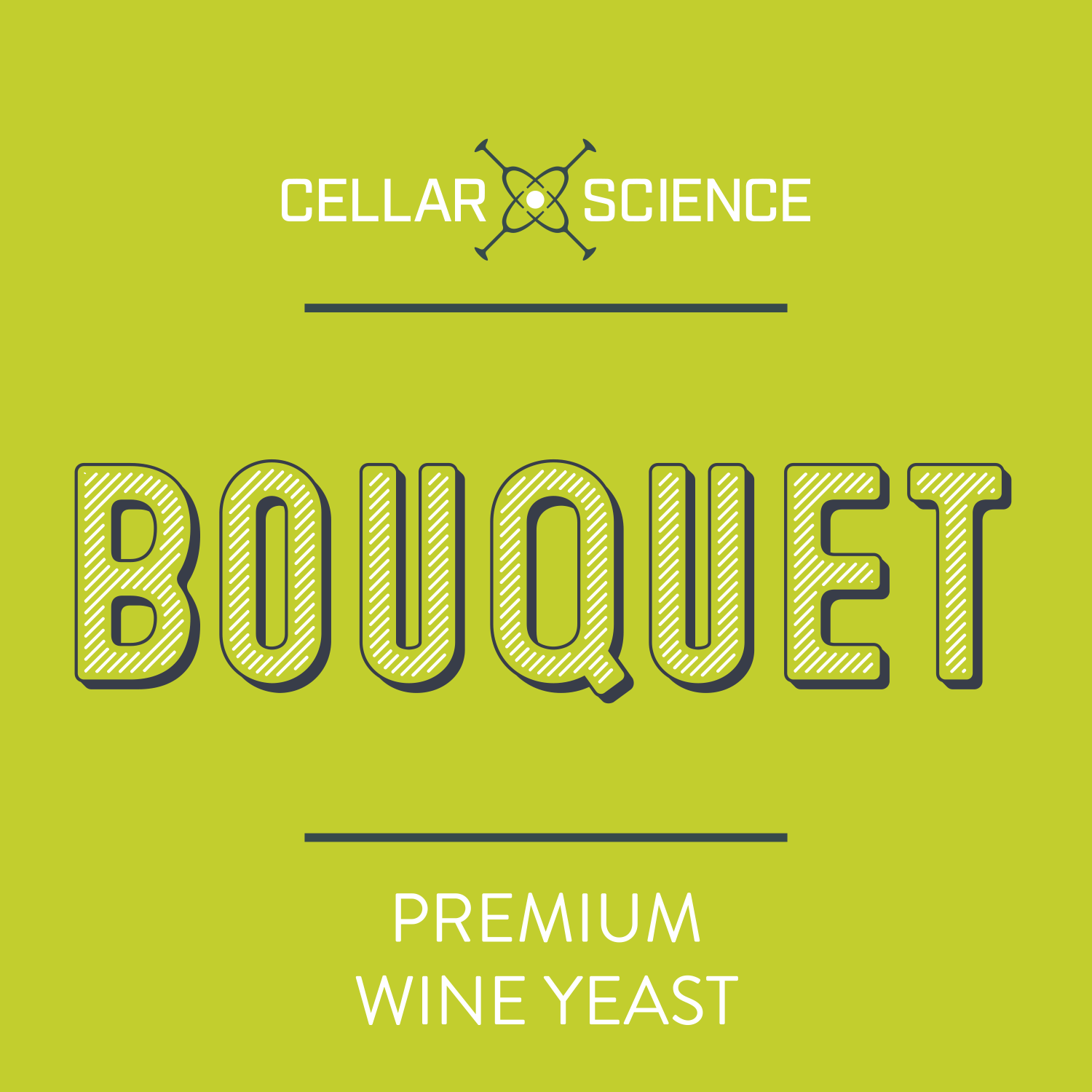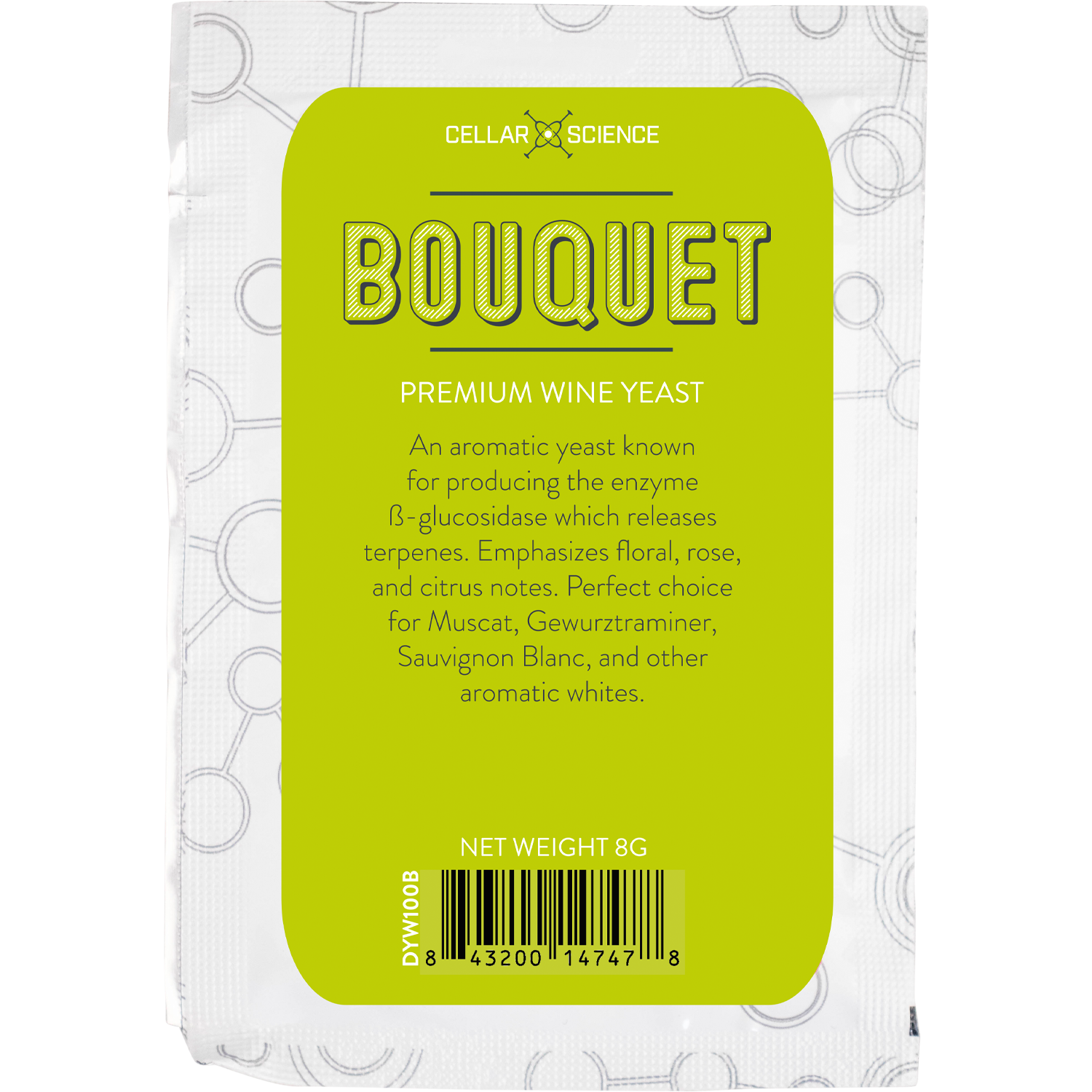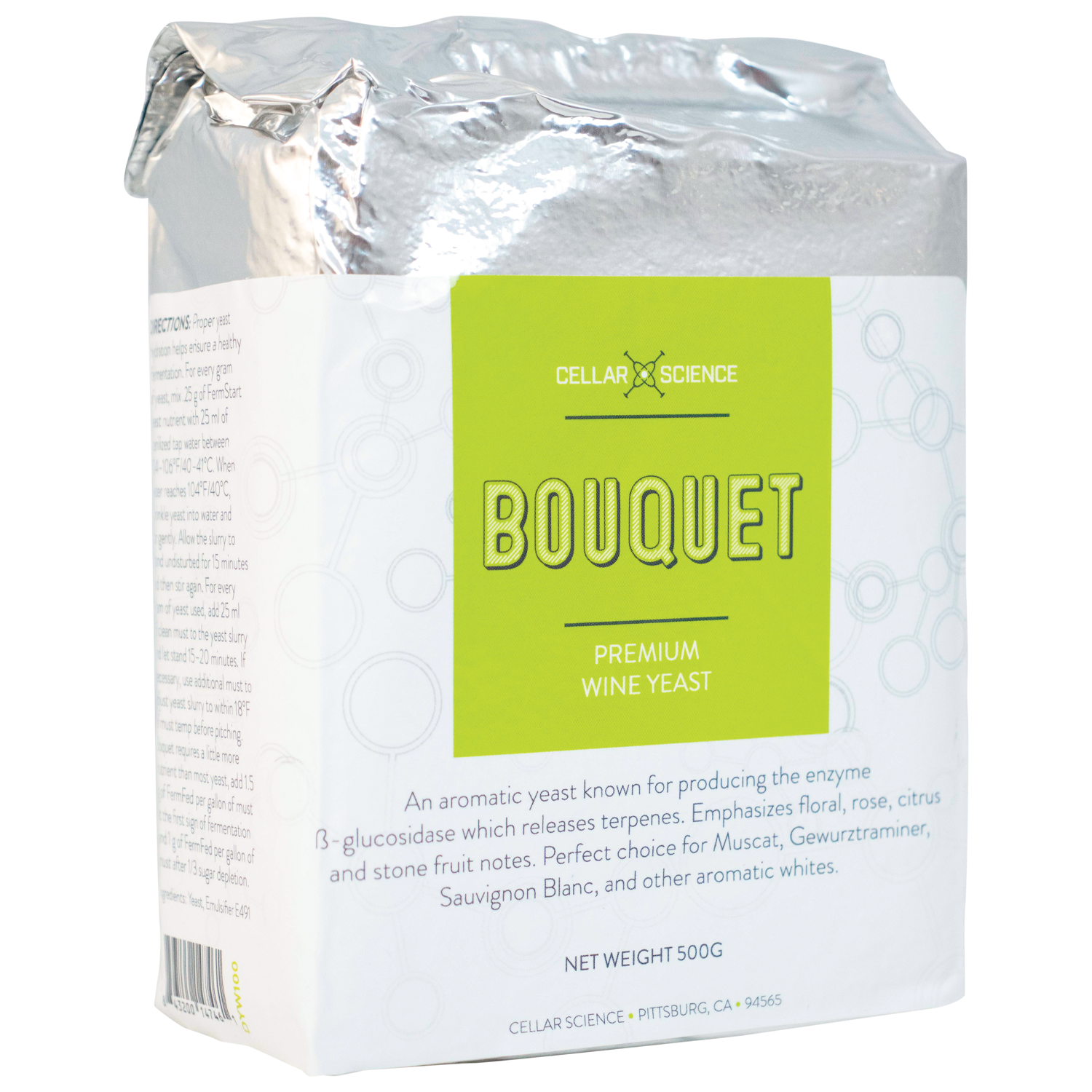CellarScience
BOUQUET Dry Wine Yeast
BOUQUET Dry Wine Yeast
- Produces ß-glucosidase to cleave terpenes
- Floral, Rose, Citrus flavors
- Will not produce volatile phenols
- Best choice for Muscat/Moscato & Gewurztraminer. Also great for Sauvignon Blanc, Riesling and Viognier
Those floral, rose, citrus, and stone fruit aromatics are bound all up in terpense in your grape skins and you know, they would really like to get out. It's your job to free them, package them in a bottle, and eventually let them waft out of a wine glass and into the nasal cavity of someone who appreciates excellence. We can help you do this. If you are making a higly aromatic white such as Muscat, Gewürztraminer, Viognier, Sauvignon Blanc or Riesling this is the ideal yeast. BOUQUET is known for its production of the enzyme ß-glucosidase which liberates aromatic compounds by cleaving terpenes from the sugars that bind them and releasing their goodness. This yeast will turn these certain grape varietals from ordinary white wines to highly aromatic, very special white wines that smell and taste amazing. The type of wine where 'stuff' wafts out of the glass! Also interesting is that most yeasts have the potential to produce phenolic off flavors, which in high quantities produce a paint like aroma (yuck!), if the conditions are less than ideal. However, BOUQUET is POF (phenolic off flavors) negative and will synthesize phenolic off flavors, eliminating that risk. This is a great yeast to co-ferment with Luscious for added complexity. Additional Fermfed nutrient is recommended at the start of fermentation due to the short lag phase of this strain. Due to such a rapid period of growth, the yeast cells require higher levels of nutrients to ensure a healthy fermentation. If you have had your wine tested and know your Yeast Available Nitrogen (YAN) follow our nutrient feeding schedule accordingly. If you don't know your YAN we recommend hydrating with Fermstart, feeding with FermFed at the onset of fermentation and feeding again with regular Fermfed after 1/3 sugar depletion. Normally the feeding at the onset of fermentation would be with Fermfed DAP free but in this case BOUQUET can use the extra DAP kick that Fermfed provides.
Start Time: Fast
Alcohol tolerance: 14%
Nitrogen demand: Very High
Yan Requirement @ 23 Brix: 340 ppm
Production of Volatile Acidity: Low
Production of SO2: Average
Cap/Foaming: Average
Ease to Ferment with MLF: Low
Malic Acid Consumption: Average
Killer Factor: Positive (though is able to coferment with Luscious)
Yeast Type: Cerevisiae
Optimal Fermentation Temp: 50–80°F
Optimal Fermentation Temp: 50–80°F
Proper yeast hydration helps ensure a healthy fermentation. For every gram of yeast, mix .25 g of FermStart yeast nutrient with 25 ml of sterilized tap water between 104–106°F/40–41°C. When water reaches 104°F/40°C, sprinkle yeast into water and stir gently. Allow the slurry to stand undisturbed for 15 minutes and then stir again. For every gram of yeast used add 25 ml of clean must to the yeast slurry and let stand 15–20 minutes. If necessary, use additional must to adjust yeast slurry to within 18°F of must temp before pitching. For a complete nutrient schedule sufficient for most fermentations, add 1.5 g of FermFed DAP Free per gallon of must at the first sign of fermentation and 1 g of FermFed per gallon of must after 1/3 sugar depletion.

